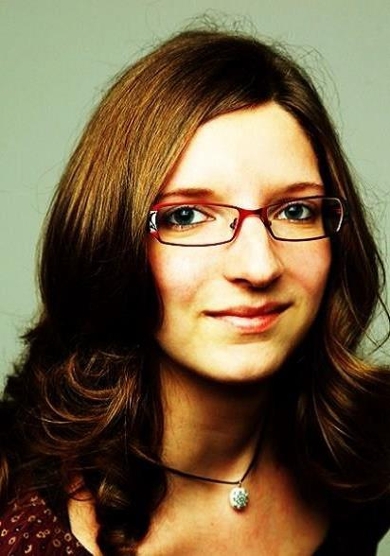Introducing: Anna Derksen
Anna Derksen is a PhD candidate at Leiden University Institute for History. Her thesis examines the International Year of Disabled Persons (1981) with a focus on the Nordic countries and their contributions to social and developmental policies and international rights agendas.

Having grown up in Germany only a stone’s throw away from Nijmegen I took up studies at the Friedrich Schiller University Jena in the eastern part of Germany, where I obtained a BA in European Ethnology/Cultural History and Political Science (2008-2012) and a MA in Modern History (2012-2014). A year abroad at the University of Gothenburg in Sweden raised my interest in the history of the Nordic countries and eventually led me to the topic of my master thesis about gender perceptions in Swedish Romanticism. An entirely different impact came from a traineeship in cultural management and public administration in Münster, as it brought me into contact with disability-related issues, ranging from administrational matters such as the accessibility of cultural institutions to ‘public outreach’ in the form of booklets in easy-to-understand language. Though an enriching practical experience, I felt it was time again to engage with academic research. To come to Leiden and work in the ERC project provided me with the opportunity to combine my passion for archival research and the interpretation of historical developments with my interests in the Nordic countries and disability.
How disability became a ‘global’ concern is the major objective of the project. The International Year of Disabled Persons (1981) and subsequent International Decade of Disabled Persons (1982-1993), initiated by the United Nations, has been a turning point for the perceptions and rights of disabled persons, as it drew the attention of international organizations, governments and society to the many forms of exclusion this group was exposed to. Disability shifted from being a medical problem and a ‘social welfare’ issue to becoming an integral part of socio-economic and human rights politics.
I will study these changes from a Nordic perspective, where the integration of disabled people into society by the help of supportive political agendas has a long tradition. The welfare state of the postwar era was built on the ideas of homogenization, equality and societal responsibility, which in turn exerted strong influence on policymaking and the social self-conception. Still, segregating elements like special institutions, environmental barriers and prejudices prevailed. Disabled people’s organizations and activists thus saw the International Year of Disabled Persons in 1981 not only as an opportunity to closer cooperate with the state and implement new ideas, but they also formulated critique and protests. I aim to expose how Denmark, Sweden and Norway (and to a lesser extent Iceland and Finland) have contributed to global disability discourses. Linked to that is the broader social, economic and political frame of the second half of the 20th century, such as the question of universal human rights, social movements and the proclaimed ‘crisis’ of the welfare state. What was the role of the Nordic countries for the conceptualization, social and political interaction and self-image of people with disabilities? To what extent did the Nordic welfare system serve as a model or inspiration for disability policies and initiatives in other parts of the world? To answer these questions I will draw on policy documents, media coverage and personal accounts of disabled people in the Nordic countries and the fields of international cooperation and development aid. This way, my research helps to understand how disability perceptions and strategies have changed over time and how they clashed or intermingled in various social, political and regional settings.
